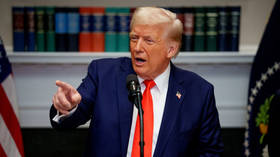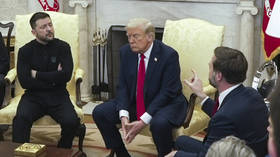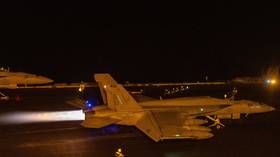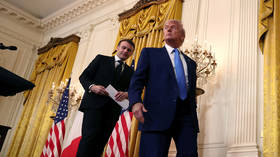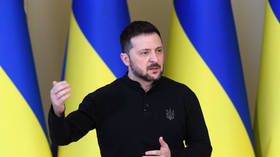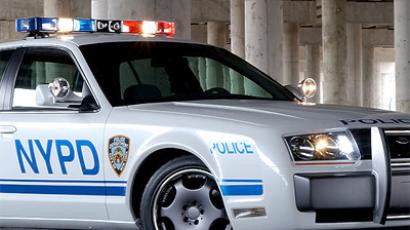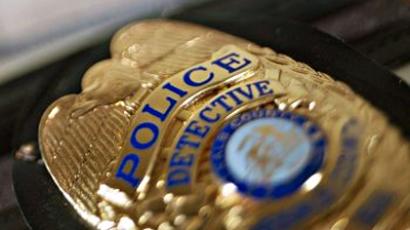NYPD spied on Muslims all over Northeast US
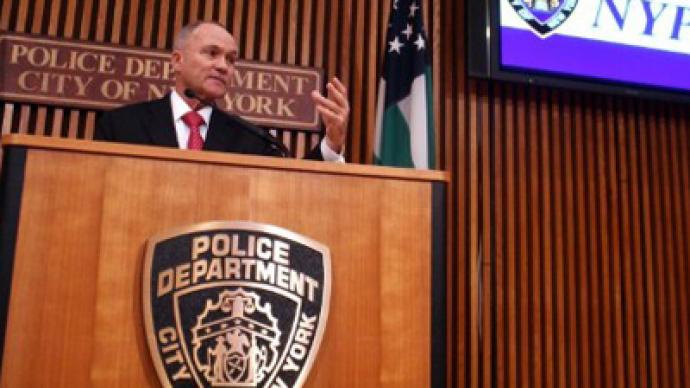
Nearly 400 miles west of Manhattan, the New York Police Department descended on the City of Buffalo.
It was a rough Buffalo winter in January 2009 and three NYPD officers wanted to speak to local authorities. They wanted to know more about students at the University at Buffalo.The goal of the mission, reads NYPD intelligence reports uncovered by The Associated Press, was "to develop assets jointly in the Buffalo area, to act as listening posts within the ethnic Somalian community.""[T]here are some Somali Professors and students at SUNY-Buffalo and it would be worthwhile to further analyze that population," acknowledged an official at the Eric County Sheriff’s Department, where Buffalo sits at the head of. Based on that information — that Muslim students and professors had been involved in academic activity at a state school — the NYPD urged authorities in Buffalo to assist in an investigation. There were no reports of wrong-doing among the faculty, staff or students. There was nothing, really. One day, reports the AP, a University at Buffalo student received an email about an Islamic conference in nearby Toronto, Ontario, forwarded the info to a group of Muslims at the college and, somehow in the process, her correspondence was intercepted eight hours away by the NYPD.The news is the latest revelation in an ongoing AP probe that investigates instances of racial and religious profiling by the NYPD. Over the course of several months, the Associated Press has uncovered previously unpublished documents and top-secret files that show that, sometimes in conjunction with the CIA, NYPD officers engaged in clandestine surveillance of Muslims in the greater New York City region, with some reports suggesting the officers even traveled abroad based on leads the department developed. In their latest findings, however, it’s made clear that the NYPD used their resources to try dispatch officers hundreds of miles away in an attempt to spy on Muslim students enrolled at the University at Buffalo and the school’s own staff.Adeela Khan tells the AP she was a board member of UB’s Muslim Student Association when she received the email about the Canadian Islam conference. "A couple people had gone the year prior and they said they had a really nice time, so I was just passing the information on forward. That's really all it was," she tells the AP. To the NYPD’s Cyber Intelligence Unit, that was enough, though. They dispatched officers to Buffalo to find out more. Additionally, reports the AP, the NYPD looked into the online activity of Muslim-affiliated groups at more than a dozen colleges in the American Northeast, included Yale and the University of Pennsylvania. When the Muslim Student Association at the City College of New York planned a whitewater rafting trip, the NYPD installed undercover officers to attend and take notes. In the reports that came out of the outing, the officer calls into question why so many students engaged in routine prayer — which, as with most religions, is a commonplace practice.Both the City College of New York and the University at Buffalo have publically expressed that they do not condone the behavior of the NYPD. A spokesperson with UB adds that the school were never approached by authorities and decries in an official statement that the institute “does not conduct this kind of surveillance, and, if asked, UB would not voluntarily cooperate with such a request.”“As a public university, UB strongly supports the values of freedom of speech and assembly, freedom of religion and a reasonable expectation of privacy," continues the statement, The Erie County’s Sheriff’s Department has not confirmed what became of the attempted investigation.For students, however, an attempt at infiltrating their own academic and religious meetings is enough to cause concern. One current board members of the UB Muslim Student Association tells the college’s paper that he fears even commenting publically over the incident, citing concern that his name will make it to NYPD and FBI files that will link him to terrorist activity. Only days after the investigation have gone public, UB Muslims are outraged — and terrified that authorities across the state are keeping their names on file.“Students who advertised events or sent emails about regular events should not be worried about a 'terrorism file' being kept on them,” NYPD spokesman Paul Browne tells the AP. “NYPD only investigated persons who we had reasonable suspicion to believe might be involved in unlawful activities.”For Adeela Khan, however, hitting “forward” on the email that ended up in her inbox not only raised a red-flag, it ended up with her name being added to a file labeled as “SECRET” by the NYPD that went all the way to Commissioner Raymond Kelly’s office.“The NYPD thinks every Muslim is a terrorist," the treasurer for the UB Muslim Student Association tells the school’s Spectrum newspaper. "The MSA has a big event today [Sunday], and nobody is showing up because people don't know if the FBI is there or not,” he adds.Years earlier, nearly three dozen Muslim-American citizens — some from the University at Buffalo — were detained by the US Department of Homeland Security upon reentering the States after attending the Toronto conference. “They told us they were pulling us over for a random search,” then-UB freshman Hassan Shibly told the school’s Generation Magazine at the time. When Shibly agreed to be fingerprinted by authorities at the border crossing, he was surprised to see what he found. “When we went in, I was shocked because two of my best friends were in there and I knew almost everyone in the room.”The DHS would later acknowledge that they were concerned over allegations that the Toronto conference would be used as a way to advance terrorist messages to an international student community. Never, until now, has it been revealed that the NYPD would pick up where federal agents left off. The incident that left Shibly and more than 30 others detained at the border occurred in late 2004; Khan’s now-infamous email forward occurred nearly two years later in November 2006.Dr. Khalid Qazi of the Muslim Affairs Council of Western New York adds to WIVB-TV that the incident, even if it never escalated past the early stages of an investigation, will not help either party in the end. “It puts sort of a cold water on our efforts to work with law enforcement,” says Qazi. “And of course, it really is of great concern, as to what it does to our civil rights and civil liberties.”On the other side of New York State, some Muslim community leaders have already responded by warning cohorts what the NYPD and other authorities can and are willing to do. "Most of the time it's a fishing expedition," Ramzi Kassem, a law professor at the City University of New York, lectured at a recent “Know Your Rights” session for Brooklyn College Students. "So the safest thing you can do for yourself, your family and for your community is not to answer."The AP continues to investigate allegations of racial profiling outside of the NYPD, which has spawned a trove of documents related to the department’s elusive Demographics Unit over the last few months. Among those on a list of “groups of interest” of the unit include those of Somalia, Albanian and Turkish descent, as well as the “American Black Muslim.”"The New York Police Department is doing everything it can to make sure there's not another 9/11 here and that more innocent New Yorkers are not killed by terrorists,” the NYPD’s Paul Browne explained last year. "And we have nothing to apologize for in that regard.”Students 400 miles away think an apology might be in order though. "Nobody wants to be on the list of the FBI or the NYPD or whatever. Muslim students want to have their own lives, their own privacy and enjoy the same freedoms and opportunities that everybody else has,” Tanweer Haq of Muslim Student Association at Syracuse University tells the AP.



